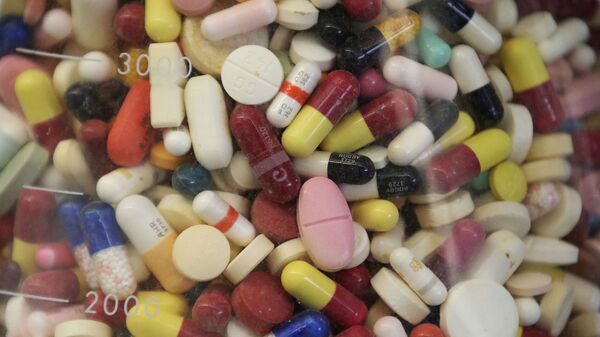Business moguls Jeff Bezos of Amazon and Mukesh Ambani of Reliance Industries Limited (RIL), diversifying into the e-pharmacy business, have set the stage for the segment to become the next fast-growing market with cut-throat competition in the arena.
Soon after India's largest online marketplace Amazon launched "Amazon Pharmacy", a Reliance subsidiary firm acquired a majority stake in the already-established online pharmacy Netmeds.
With industry reports and experts forecasting strong growth in the segment, a market which is significant to the healthcare sector in danger of being exploited with grey goods and counterfeit medicines.
According to ASSOCHAM, a member of the International Chamber of Commerce, 25 percent of medicines sold in India are either fake or of inferior quality. In a 2015 report, it also stated that the popular over-the-counter drugs sold under generic names such as Crocin and Betadine are the most counterfeited.
Suresh Sharma, a pharmaceutical sales representative who acts as a bridge between doctors and pharma companies, explained that more players joining the e-drug sales will lead to an influx of inferior quality medicines into the chain which can be easily procured by conglomerates in bulk from the market even without showing a proper bill.
“This is a sensitive market where negligence can cost a person's life. The online retailers woo customers with deep discounts of up to 40-50 percent and hassle-free home delivery by cutting out on middle man and directly procuring the medicine from companies. However, there is a back door entry to the black market where popular over-the-counter pills can be purchased in bulk without a proper bill and these are the ones that have higher chances of being fake”, explained Sharma.
Dr Suresh Kumar, medical director of LNJP Hospital in Delhi, cautioned hospitals and doctors about unregulated websites selling medicines and said there is a greater need for guidelines and rules from the government. The sale of steroids and antibiotics without a proper prescription can be easily misused by consumers.
“With a large base of smartphone users and dependency on e-commerce activities in the country, the government needs to tighten the rules for these platforms as there are more chances of people buying medicine with fake prescriptions. The e-pharma will also reach out the rural section where consumers are less aware to differentiate between generic and genuine drugs”, said Kumar.
The All India Organisation of Chemists and Druggists (AIOCD), which claims to represent more than 850,000 members across the country, has demanded that the government should immediately stop these "illegal online pharmacies".
“The giants come with deep pockets and try to flush away the small shopkeepers. They eliminate the competition by giving huge discounts and dumping products by burning capital to win over the market. It’s an unethical practice”, said Ashwani Mahajan, national co-convener of Swadeshi Jagaran Manch.
He adds that Amazon and Reliance's effort to barge into the segment is illegal as Delhi's High Court has banned the sale of medicines through unlicensed online platforms until the draft rules for regulating e-pharmacies are finalised.
The Drugs Controller General of India (DCGI) has also urged the online pharmacies not to stock medicines and only take part in the delivery of drugs by partnering with offline retail pharmacies, a move opposed by the e-pharmas, which have argued that it would increase their dependence on these local offline stores.
Promising Future
FICCI - India's top industry body - estimated on Friday that the e-pharma sector will be able to tap approximately 70 million households by 2025 from the current level of 8.8 million. It also forecast that e-drug stores are expected to acquire a $2.7 billion market size by 2023, up from $360 million currently.
India has more than 50 e-pharmacy platforms, which provide jobs to more than 30,000 people.
E-harmacy received a big push during the COVID-19 pandemic when the federal Home Ministry recognised the delivery of medicines through e-commerce is an essential service. The business model is also in tandem with Prime Minister Narendra Modi’s call for a digital India.
“The e-pharmacy model played a crucial role during the pandemic and ensured the supply of essential items including medicines. The overall essence of these circumstances is that the importance of technology and digital infrastructure to deliver affordable and quality medicines and health services to consumers across the country has clearly emerged”, said Ashwini Kumar Choubey, minister of state for health and family welfare.
The online stores have remained a big hit among people in metro cities for offering attractive discounts of up to 60%, besides providing free home delivery with the easy option of uploading prescriptions on the site.
FICCI reported approximately 70%+ consumers cited satisfaction by e-pharmacy services during the COVID-19 pandemic, with an inflow of $700 million in investments.





